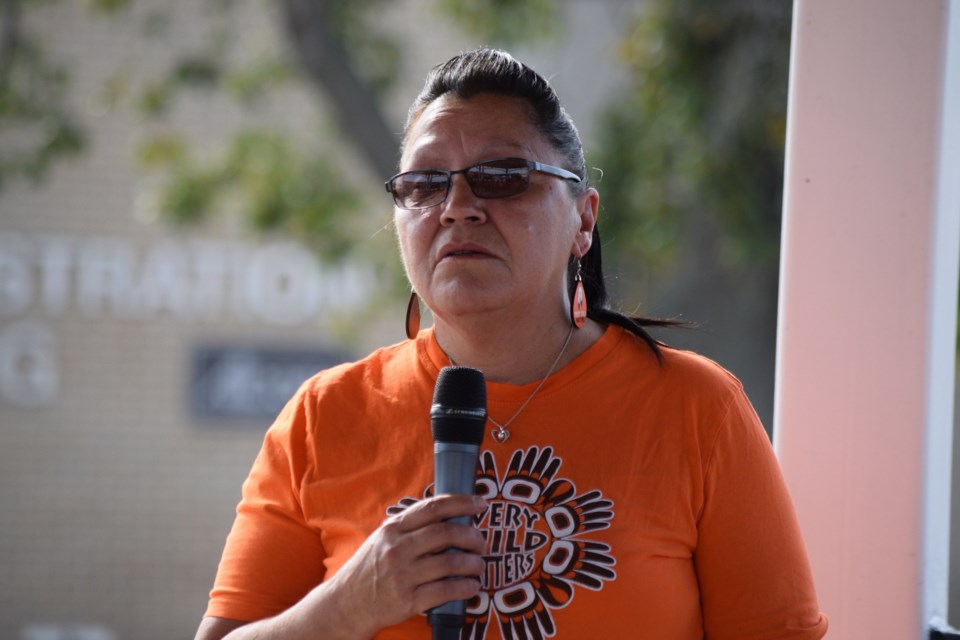BARRHEAD – To begin healing, one must learn and accept the truth.
This was the basis of the Truth and Reconciliation Commission (TRC) and it is also something Robin Berard knows all too well as she is the daughter of a residential school survivor and knows first-hand what damage those schools did to those who attended the institutions and those of future generations.
Berard, a Barrhead resident originally from Bigstone Cree Nation near Wabasca and was one of the organizers of the community's Truth and Reconciliation Day. The day is held annually on Sept. 30 to honour the survivors, their families and communities.
Close to 50 people attended the Barrhead march that started at the Town of Barrhead municipal office and moved to Gazebo Park, where people were invited to tell their truths about the impact of the residential school system.
Berard said her mother attended a residential school for six years. However, she did not know that as a child as she was removed her from her mother’s care when she was very young and put her into the foster care system. Berard was the youngest of 14 children.
"I did not realize the anger I was feeling came from my mom," she said.
Berard noted her journey toward healing started about seven years ago when she was diagnosed with cancer. Because of her diagnosis, Berard said she had no choice but to look into her family, especially her mother's history.
Many answers came in the envelope that contained her adoption records.
"It took me six months to get the courage to open it up because I was afraid of the truth," she said.
Berard added that her mother suffered unconscionable abuses at the hands of her teachers, the nuns and priests that ran the school, so she never had a role model to show her how to love and be respectful.
"In those schools, they were so disrespected. They were washed down with lye to get the 'Indian' out of them," she said. "They did so many things to break our spirits. For a lot of the children, they took their lives and just put them in the ground. They have found 5,000 graves at (former residential schools). And they haven't found all of them."
As a result of the abuse Berard's mother suffered, which included sexual abuse, including rape, she turned to alcohol and moved into a small hotel apartment in Athabasca with her husband and proceeded to have 13 children, which child welfare took away.
"They told her to get herself clean and into a proper home so she could get her children back, but she couldn't," she said.
Instead, Berard said, her mother continued to drink, and one night, while on a bender, she was raped.
"What I found out through those documents is that I was the result of that rape," she said.
Berard added that she was repeating the cycle of anger and alcoholism because she did not realize what her mother had gone through, and it was only by finding out the truth that she was able to let it go and begin her healing process.
"How many other Indigenous people have had their lives consumed by anger and alcohol? But now is the time to come out ... that is the first step in healing," she said. "The next step is to work together to help each other heal. It is not just Indigenous people who need to heal, it is all nations."



